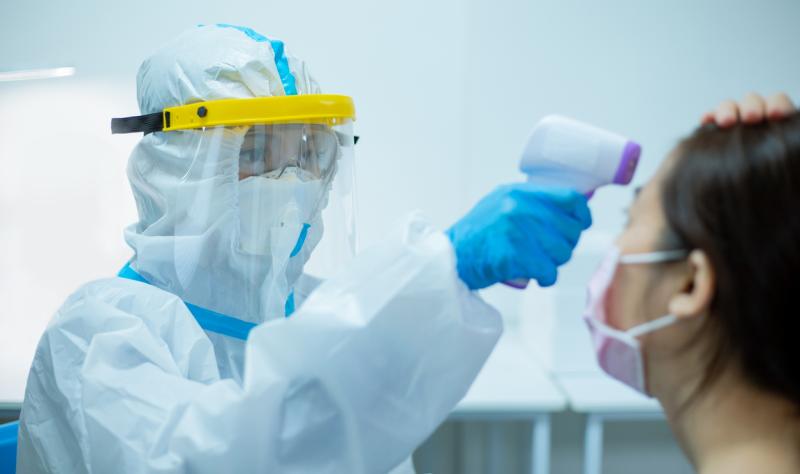Opinion | The U.S. has lost 1 million lives from covid-19. Where do we go from here? – The Washington Post


As the United States surpasses the tragic milestone of 1 million deaths from covid-19, we must decide where we go from here.
The bad news is that this coronavirus is here to stay. It will continue to cause surges fueled by new and possibly even more contagious variants. The White House is projecting that as many as 100 million Americans could contract covid-19 this fall and winter.
These stunning numbers are not reason for despair. Rather, they are a call to action for interventions that have the highest return for protecting our population while exacting the lowest cost to individuals and society.
We must agree that preventing infection is no longer the primary goal. A zero-covid strategy will not work, as evidenced by China’s abject failure. Since vaccines became readily available, the aim has shifted from avoiding the coronavirus at all costs to turning it from a deadly disease to one that’s akin to the flu — not something people want to get, but a manageable illness for nearly all who contract it.
As is the case for the flu, we should instead define success as preventing societal harm by keeping hospitals from being overwhelmed and preventing individual harm by stopping people from becoming seriously ill and dying.
There are three key short-term interventions that can achieve both goals, with relatively low cost and broad public support.
First, encourage up-to-date vaccination. Vaccines are the first line of defense and protect well against severe disease, but their effectiveness wanes over time. We should prepare for regular booster shots, including the possibility of annual boosters. New boosters should be targeted to evolving variants, with the hope that a “pan-coronavirus” vaccine could be developed in time.
Second, scale up treatment, especially oral antivirals. Pills such as Paxlovid should be as ubiquitous as Tamiflu for influenza and antibiotics for pneumonia, such that it becomes the norm for everyone to take these antivirals if they test positive for the coronavirus. These oral remedies don’t just help the individual; by reducing progression to severe illness, they also offload the strain on hospitals. Areas where hospital capacity is tightening should be “surged” treatments to help patients recover at home.
Third, make rapid testing free and widely available. Most Americans will not listen if health officials advise them to forgo indoor dining, avoid leisure travel and stop indoor gatherings. The risk of severe illness to them, individually, is very low, and it’s not reasonable to ask people to put valued activities on hold in perpetuity. But it is reasonable to advise people engaging in higher-risk activities to take a home test before they spend time with immunocompromised loved ones, who are more susceptible to severe illness. Wedding organizers and other event planners can also require same-day tests to increase accessibility of their gatherings to those who wish to avoid the coronavirus.
Medium-term, I’d like to see improvements in ventilation and disease surveillance, which would help with infectious pathogens beyond this coronavirus. I hold out hope that bipartisan agreements can be reached on paid sick leave, as well as better health-care coverage for the uninsured and underinsured. And there remains much unknown about long covid; developing treatments should also be a priority.
As important as the measures that should be implemented are the ones that shouldn’t. School and business closures were necessary solutions earlier in the pandemic, but the costs far outweigh the benefits now that we have other tools.
I also don’t think a government-imposed mask mandate should return, except in the dire circumstance that a far deadlier virus emerges. While some view masks as a minor inconvenience, many Americans see them as a defining symbol of the pandemic, which they were desperate to shed. I doubt the marginal benefit of forcing people to grudgingly don porous cloth masks is worth further inflaming culture wars, especially when there are more effective measures that do not engender such vitriol. Plus, people can protect themselves with an N95 mask regardless of what others around them choose to do.
After 1 million lives lost, I’d like to say that we’ve learned about the lifesaving work of public health. But I’m more worried that the politicization of covid-19 is bleeding into other crucial prevention efforts. At least 26 state legislatures have passed laws that limit health officials’ authority to enact emergency measures such as quarantining and masking, which could affect responses to outbreaks of tuberculosis and measles. The backlash to coronavirus vaccinations has contributed to falling rates of other routine childhood immunizations, which could cause mumps and polio to reemerge. Cancer screenings have plummeted, while drug overdoses have skyrocketed, including an unprecedented doubling in fatal overdoses among teens.
Reducing further harm from the coronavirus is an important goal. But it must exist in concert with efforts to protect against other threats, which means preserving the trust of the public.



